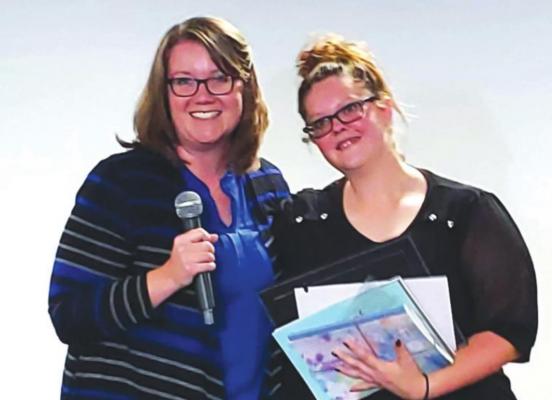Family Treatment Court celebrates first ever graduate
Armindy Halverson is the very first Kay County Family Treatment Court graduate. Her graduation ceremony was recently held at City Central to honor her participation and many achievements in this newly added beneficial court program for struggling parents in the area. Halverson entered the pro
Halverson entered the program on April 25, 2019 and graduated just short of a year and a half’s time on October 8, 2020.
“It changed my life, if you work the program and do what is required of you, stay sober, do all of your classes, such as Bridgeway and Grand Lake, it helps and it helped me get my son back in my life!” said Halverson.
“It took almost a year, my son was in DHS custody in my sister and brother-in-law’s care. It went from me getting supervised visitation with him to him now being with me full time. We worked on my DHS case, treatment court and this Thursday my DHS case will be closed!” added Halverson.
Family Treatment Court is a court program that is all about the reunification of families. The purpose of this program is for the protection of children, but at the same time, it provides the parents of these children a treatment program that will give them the opportunity to acquire the skills and knowledge necessary to choose a responsible, drug and alcohol free lifestyle for themselves and for their children.
There are several people involved in this program, including DHS caseworkers, a parent’s attorney, a children’s attorney, Bridgeway coordinators, the Assistant District Attorney and of course, the Judge. There is court every month, drug testing is involved and each phase of the program is referred to as a “milestone”. These are different phases as the participant moves forward and progresses throughout the duration of the court program. After graduation, Aftercare and support is in place to help the participant and their families to remain stable after the reunification process.

